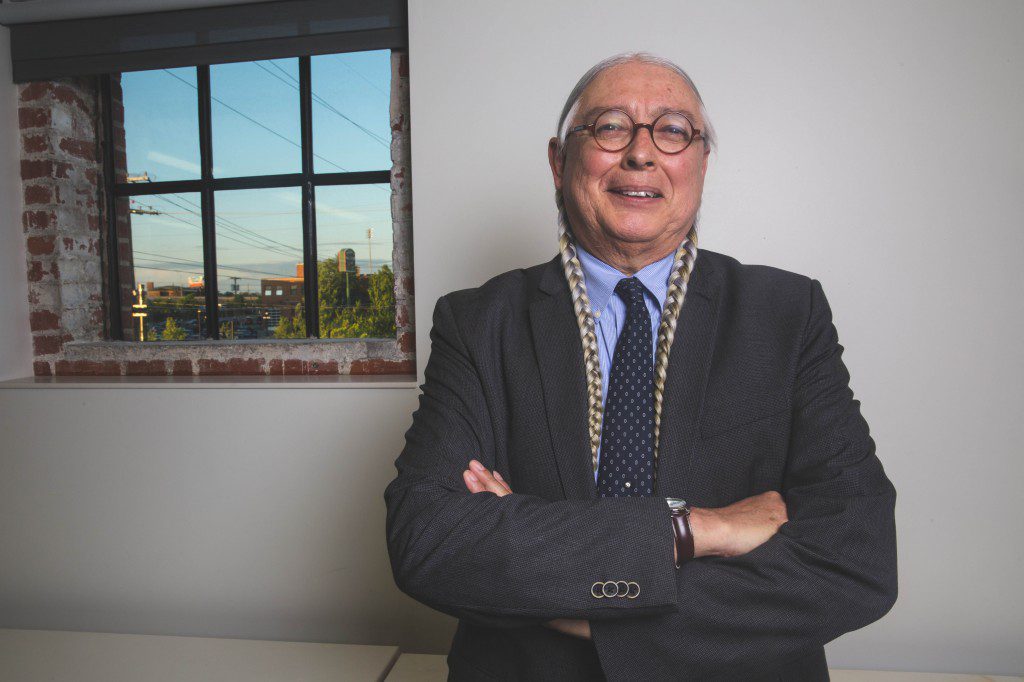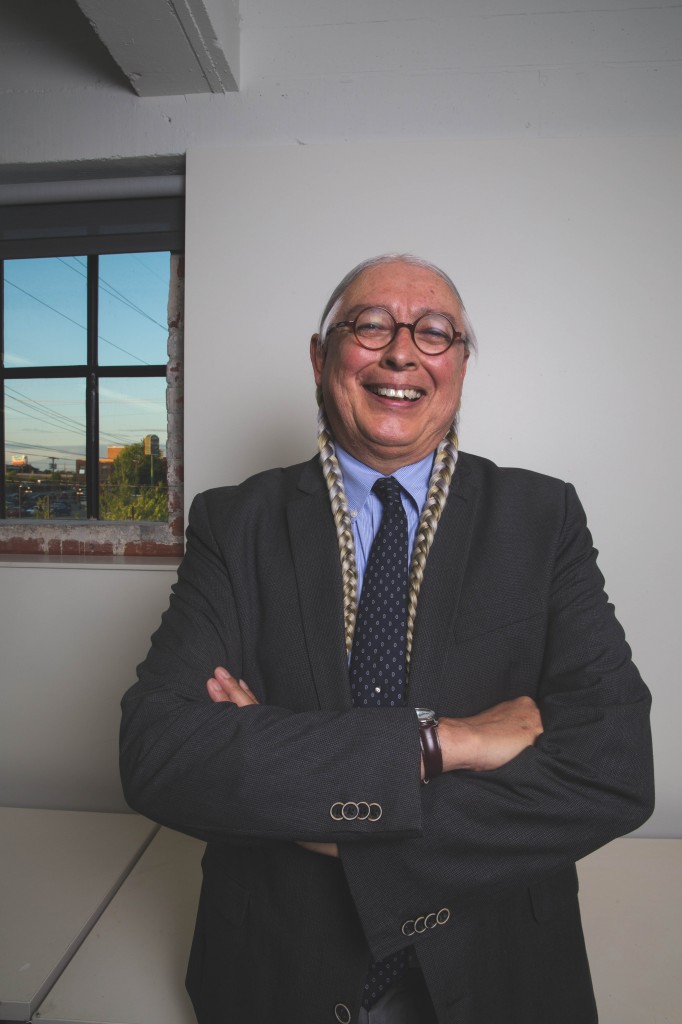
Even in Oklahoma, a state noted for its large American Indian population, few are familiar with the term “Red Power.”
This often-overshadowed movement of the 1960s Civil Rights era was characterized by the push to reclaim tribal lands from the federal government, social protest in the face of poverty and poor education systems and a revival of native culture and literature.
While several of the movement’s objectives were achieved – ushering in a new age of protection for indigenous rights – since the 1980s, the hard-won gains of the movement have faced a slow erosion in federal courts. Plenty of today’s generation are unaware the Red Power Movement even existed.
But Walter Echo-Hawk remembers. The movement was one of the primary inspirations that led him to dedicate his life and work to the pursuit of justice for indigenous peoples.
“I decided to go to law school during my college days in the late 1960s,” Echo-Hawk says. “I was encouraged by the family to become a lawyer to address Indian issues, problems and aspirations, especially those from our Pawnee community. This was during the early days of the Red Power Movement, when youth were concerned about civil rights and the need to coax the federal government into abandoning the destructive termination and assimilation policies and adopting an Indian self-determination policy.”
Echo-Hawk, a member of the Pawnee tribe and native of the city of Pawnee, has since enjoyed a storied career as a crusader for American Indian rights. For a quarter-century, he served as an attorney for the Native American Rights Fund, representing tribes in landmark cases on such matters as religious freedom; civil, treaty and water rights; and legislation regarding religious and repatriation rights of American Indians. Today, Echo-Hawk continues to represent tribes through his work with Crowe and Dunlevy, while also serving as a chief justice for the Supreme Court of the Kickapoo Tribe.
Echo-Hawk is also committed to teaching others about federal Indian law and indigenous civil rights and culture. He is a sought-after public speaker, traveling around Oklahoma, the country and abroad to discuss topics from social justice and human rights to philanthropy for indigenous arts and culture.[pullquote]“Today, federal Indian law is a very vibrant body of federal law that provides the legal framework in the United States for recognizing and protecting the political, property, cultural, civil, religious, economic, environmental and treaty rights of Native Americans.” [/pullquote]
“In recent years, I have tried to share my legal experiences that contributed to the rise of modern Indian nations,” Echo-Hawk says, “first as an author, and second as an adjunct professor of law at the University of Tulsa College of Law.”
He is the author of multiple books and publications, including two volumes on native law titled In the Courts of the Conqueror: The 10 Worst Indian Law Cases Ever Decided and In the Light of Justice: The Rise of Human Rights in Native America and the U.N. Declaration of the Rights of Indigenous Peoples.
“Today, federal Indian law is a very vibrant body of federal law that provides the legal framework in the United States for recognizing and protecting the political, property, cultural, civil, religious, economic, environmental and treaty rights of Native Americans,” Echo-Hawk says. “Under the protective features provided by this legal framework, great nation-building advances have been made by Indian nations across the country. Most tribes have full-service governments and are the economic engines for their local economies.”
However, he cautions, vigilance and activism are still essential.
“Federal Indian law also has a dark side to it from doctrines of colonialism that were implanted in this legal framework during the 1800s. That dark side of the law serves to weaken indigenous rights and make them vulnerable, and this problem in the law is compounded by an unfriendly (U.S.) Supreme Court that has embarked on a disturbing judicial trend since 1985 toward trimming back our hard-won Native American legal advances. So the challenge for this generation is to reform and strengthen our legal framework and make it a more just and reliable body of law.”
Echo-Hawk urges today’s generation of American Indian youth to educate themselves on federal Indian law.
“This generation should study human rights and work to implement the United Nations Declaration of the Rights of Indigenous People standards into U.S. law,” Echo-Hawk says, “just like our forebearers worked to obtain the Indian self-determination policy during the 1950s and 1960s.”























